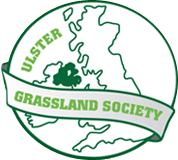Event Details
- Date: 5 May 2010
- Venue: Loughgall
Dr John Orr, President of the Ulster Grassland Society (UGS), welcomed about almost 100 members of both the Ulster Grassland Society and the Irish Grassland Association to Loughgall, noting that it was the first time that both organisations had come together for a technical meeting.
Dr Seamus Kennedy, AFBI Chief Executive Officer, pointed out that although Northern Ireland has a lack of mineral resources it does have wealth in the grass which is grown. AFBI aims through its R&D programme and the adoption of the results generated to increase the productivity of milk, lamb and beef produced from that grass.
David Johnston, who leads the grass breeding programme at Loughall, told farmers about the successful varieties such as Glen, Tyrella and Dunluce which have been developed there and which are now marketed internationally through links which have been established with seed company Barenburg. David explained how grasses are increasingly selected for their ability to maintain digestibility well into the growing season and also how mixtures have been put together to suit situations where low levels of fertiliser are used.
Dr Scott Laidlaw gave an insight into the productivity of grass clover swards and explained how the information published fortnightly as ‘CloverCheck’ in conjunction with CAFRE can be used as a management aid for grass clover swards.
Farmers were interested in the results presented by Dr Jim McAdam from the silvopastoral or agroforestry systems where sheep are grazed or cereals
grown between widely spaced trees. Silvopasture is considered as forage and eligible for Single Farm Payment (SFP). Alternatively farmers can consolidate their SFP to facilitate new planting and the Woodland Grant Scheme can support planting costs.
Cows fitted with apparatus to collect methane emissions were seen by many of those present for the first time
Dr Lynne Dawson explained that this work is important in compiling objective data to support the industry as it faces challenges associated with climate change.
Dr Francis Lively showed how producing dairy bred calves as young bulls improves animal performance and margin over feed costs and reduces carbon footprint compared to producing steers. However, careful consideration must be given to market outlets for bull beef and the technical skill required for operating such a system.
Dr Alistair Carson and his team of Dr Marijntje Speijers and Dr Ronald Annett provided a lot of new information about lameness in sheep and methods of control. They also offered guidance on the factors which most influence sustainable, profitable sheep production.





